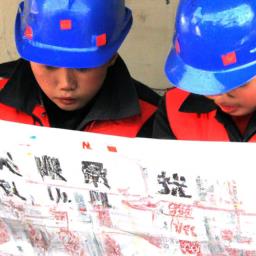1. Introduction
Small towns play a crucial role in the overall development of any country. As centers for economic, social, and cultural activities, they contribute to the well-being and prosperity of their inhabitants. However, the proper development and organization of small towns require careful consideration and planning. In this paper, we will explore the importance of small town development and discuss various aspects of town planning and construction.
2. Importance of Small Town Development
Small towns provide numerous benefits to society, such as reduced congestion, better living conditions, and opportunities for local businesses. By developing small towns, we can alleviate the pressure on larger cities and promote balanced regional development. Additionally, small towns help preserve local culture and heritage, making them valuable assets for future generations.
3. Principles of Town Planning
Effective town planning is essential for the long-term sustainability and livability of small towns. Several principles should be considered during the planning process, including proper land use allocation, provision of basic amenities, creation of green spaces, and efficient transportation systems. These principles ensure that the town is organized, functional, and attractive to residents and visitors alike.

4. Infrastructure Development
One of the key aspects of small town construction is the development of infrastructure. This includes the construction of roads, bridges, water supply systems, and waste management facilities. Adequate infrastructure supports the needs of the population and facilitates economic growth. Furthermore, incorporating sustainable and eco-friendly technologies in infrastructure development can contribute to environmental preservation and resource conservation.
5. Community Participation
Community participation plays a vital role in the success of small town construction. Involving residents in decision-making processes and seeking their input fosters a sense of ownership and belonging. Additionally, communities can contribute their knowledge and ideas, which can lead to innovative solutions for various challenges. Through collaboration and cooperation, small towns can thrive and create a strong social fabric.
6. Economic Development
Economic development is a central aspect of small town construction. Local businesses and industries should be supported and encouraged to flourish, creating employment opportunities and boosting the town's economy. This can be achieved through the establishment of business-friendly policies, promoting entrepreneurship, and attracting investments. By fostering economic growth, small towns can enhance the quality of life for their residents and sustain their development in the long run.
7. Sustainability and Environmental Considerations
Small town construction should prioritize sustainability and environmental conservation. Incorporating renewable energy sources, implementing efficient waste management systems, and preserving natural habitats are crucial for creating a greener and more livable town. Sustainable construction techniques, such as using eco-friendly materials and designing energy-efficient buildings, should also be adopted to minimize the environmental footprint and ensure long-term sustainability.
8. Conclusion
In conclusion, the development of small towns plays a significant role in regional development and overall societal well-being. Proper town planning, infrastructure development, community participation, economic growth, and sustainability are all essential components of successful small town construction. By prioritizing these aspects, we can create thriving, livable, and sustainable small towns that contribute to the overall growth and prosperity of a country.






网友评论